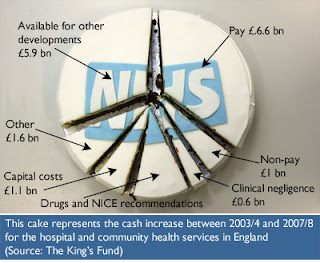 Most Canadians are proud of their public health care system.
Most Canadians are proud of their public health care system.
It's paid for by everybody and used by everybody, it pools the cost of treatment and care.
Like every other health care system in the developed world it has its problems but, contrary to the claims of its enemies, it isn't in crisis.
Until recently, Britain has been like Canada.
Canada's National Health Service, despite its problems, is doing a good job and improving. But its future has been put at risk by the introduction of market forces and profit-seeking providers.
Some B.C. politicians and other private health care lobbyists are claiming that U.K. health care privatization is a success. Nothing could be further from the truth.
Britain recently introduced private hospitals, much like B.C.'s private surgical clinics, to carry out the cheap, less-risky operations on generally healthy patients.
In other words, they "cherry-pick" the profitable work and leave the NHS hospitals to care for less healthy people and all the other complex procedures.
Yet operations in these private hospitals cost on average 11 percent more than in public ones. And these profit-seeking companies are a guaranteed flow of funding.
So if their contract specifies 5,000 patients a year and only 4,500 go there, the private hospital gets paid for the full 5,000.
The former chair of the British Medical Association, James Johnson, has said, "I see hospital services destabilized as a result of over-emphasis on the use of the independent sector . . . the money could often have been better spent making greater use of existing NHS capacity."
While the incomes of private sector hospitals are guaranteed, public hospitals have been forced to compete, not just with the for-profit outfits, but with each other. To do that, the government introduced payment by results, the politicians call this "patient focused funding."
The result has been a mess. The new system was supposed to introduce fiscal discipline, but in its first year the NHS overspent its budget for the first time in 60 years. Hospitals cut back on services to clear deficits, resulting in major backlashes against the Labour party government all over the country.
The troubles don't end there.
The introduction of "patient-focused funding" and market forces has increased the proportion of the health budget spent on bureaucracy from four per cent to approximately 15 percent.
If the money is "patient focused," you have to set up and run a system that tracks both the patients and the money.
Preparing bids costs money. Lawyers and accountants have to be paid. Hospitals have to calculate, log and code each patient's costs. Then they have to send off the bills. The purchaser has to check them.
Some bills are challenged, more lawyers and accountants. And clinicians have to divert time from treating patients to tracking paperwork.
When privatization was introduced, it was presented as a solution for reducing waiting lists and costs. But in reality neither the private sector nor the "patient focused" funding are responsible for cutting the waiting lists in the U.K.
Editor's opinion:
"I think that governments of countries with a public health care system should keep an active eye on competition. They should impose laws on treatment in private health care facilities that compete with public facilities when the particular treatment is covered by the system."
